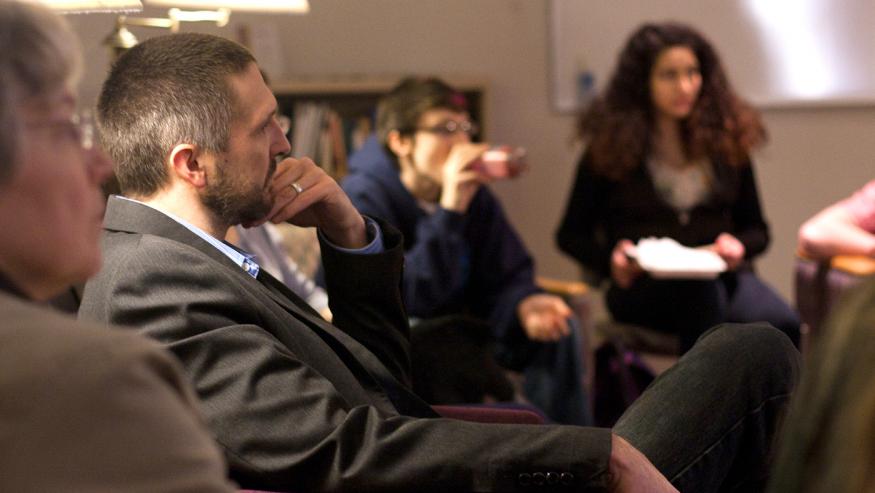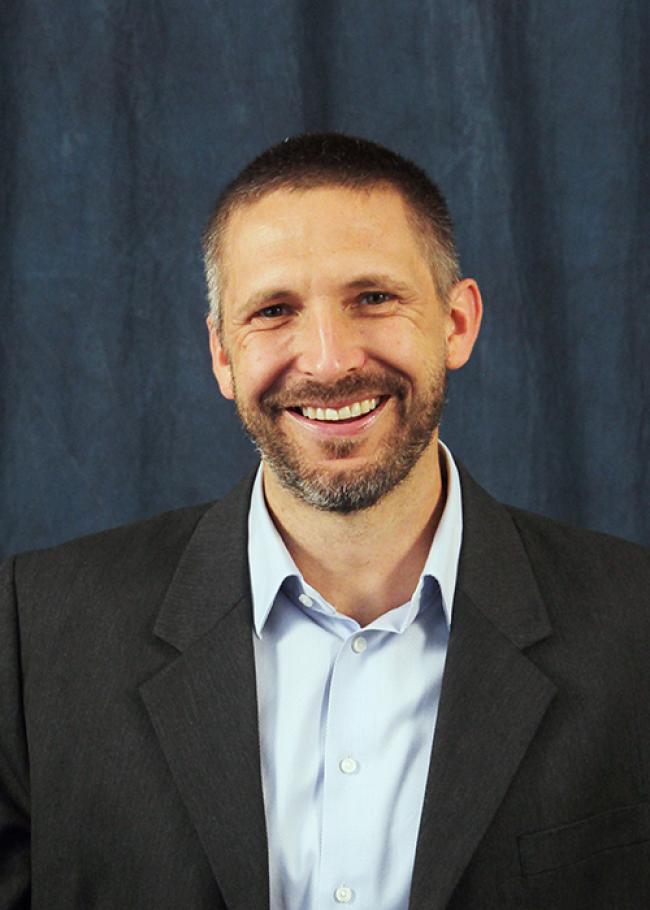
Q & A with Dr. Jason Mahn on the relevance of the Reformation
How important is this anniversary to the church?
Lutheran churches from around the world have been talking about this 500-year anniversary of the Reformation for years, and Augustana is glad to contribute to the many ways that the church is commemorating the Reformation. The Reformation was exactly that—a moment when the Christian church undertook the difficult and creative process of re-forming itself.

The year 1517 marks an important year for Christians. With the Reformation, Christians were called to read and understand the Bible on their own. It was also the time when education came to include both boys and girls, when the first social support system (outside of monasteries) was created, and when everyday lay Christians understood that they had vocations—meaningful, faithful work to do to contribute to the common good.
These reformations are not for Lutheran Christians alone. Not even close! People throughout the world are looking back over the past 500 years and realizing what a tremendous impact Martin Luther and the Reformation had on the modern world.
Why should this anniversary matter to anyone?
Almost every church has been shaped by the Reformation—not only Lutheran churches, but other Protestant churches, the Catholic Church and Eastern Orthodoxy have been affected by this reforming movement within the whole church. What is more, the reforms that began in 1517 surpassed the arena of “religion.”
Martin Luther reformed the relation between the church and state, he critiqued economic abuses, promoted universal education, and he imagined human freedom as both freedom from authoritarianism and the freedom to be for those who need your help. You could say that the Reformation did nothing less than re-imagine what the common good is, and how each person can contribute to it.
‘You could say that the Reformation did nothing less than re-imagine what the common good is, and how each person can contribute to it.’
Of course, Luther had his failures. He turned against peasants at a decisive moment, called the Pope some pretty colorful names and ended his life spouting a vindictive against Jewish persons. I think it is to the credit of the ELCA church that it has repudiated such ideas, especially Luther’s anti-Jewish writings, and formally repented of them. They can do so because they continue to live out a church that is always reforming.
What is important to know about Augustana’s planned events?
Augustana is Lutheran not because there are only Lutherans here. We are Lutheran, deeply Lutheran, in fact, because we live out the reforming values of our institution as we serve students and community members who come from all sorts of faith traditions and no particular tradition.
The events planned to commemorate the 500-year anniversary of the Reformation will certainly celebrate this tradition, and Lutherans from Augustana and the Quad Cities will no doubt add their voices to that celebration. But we think that the events will also appeal to those who want to think more carefully about this tradition, with all its successes and failures.
Faith plays such an important role in people’s lives—whether you live in 16th-century Wittenberg or 21st-century Rock Island. We are offering two multiple-week book-discussion series that will try to get beyond celebrating the Reformation to thinking critically about this religious and intellectual tradition.
Why would you encourage individuals to attend the Relevant Reformation events?
When I speak at area churches, I realize how hungry people are for honest and open conversation about issues that matter today. Often church communities foster such open and honest conversation, but not always.
The Augustana campus wants to offer a safe space and place to be brave—a place where people can talk openly about social justice, interfaith engagement, spiritual exploration, their vocations and otherwise reasonably reflect on religion and its role in our lives. The events surrounding the 500-year anniversary of the Reformation offer the time and space for participants to do so.
Why is Lutheran higher education relevant today?
Augustana and other institutions within Lutheran higher ed are relevant, and desperately needed, because we educate all students—including Christian, Muslim, agnostic students—to discern and live out their vocations, their callings to do good and needed work in a world that desperately needs them.
In other words, Augustana and other ELCA-related institutions educate not exclusively or primarily to secure employment, to develop a “life of the mind,” or even for citizenship and to cultivate civic virtues, as important as each of these is. Lutheran institutions principally educate students so that they can discern the material and spiritual needs of other human and nonhuman creatures and then respond with committed service and out of a sense of gratitude.
‘The world desperately needs our graduates, persons able to respond capably and compassionately to all those who need them.’
Language of vocation is deeply Lutheran. Before Martin Luther, only nuns, monks and priests had vocations. For Luther, all persons are called to meaningful work—especially work which serves the common good and leads to the flourishing of other people, or what Luther called the neighbor. Educating young persons so that they can discern their calling, their needed place in a world that needs them, is deeply Lutheran stuff.
At the same time, “calling” and “vocation” are not the exclusive property of Lutherans or even Christians. Rather, out of the depths of our own theological tradition, Augustana educates Lutherans, other Christians, people from other religious traditions, and the nonaffiliated for lives of meaning, purpose, and responsible service so that the world God created and redeems might also flourish.
Individuals live out their callings whenever they match their own passions and capabilities—their sense of being gifted—with the real needs of the world. They learn in order to respond, to be helpful, and to care. Augustana lives out its calling when we teach and support and help form such students. You could say that our collective vocation is to educate for vocation.
Augustana and other ELCA colleges and universities are thus called to good and needed work in the world. The world desperately needs our graduates, persons able to respond capably and compassionately to all those who need them.
